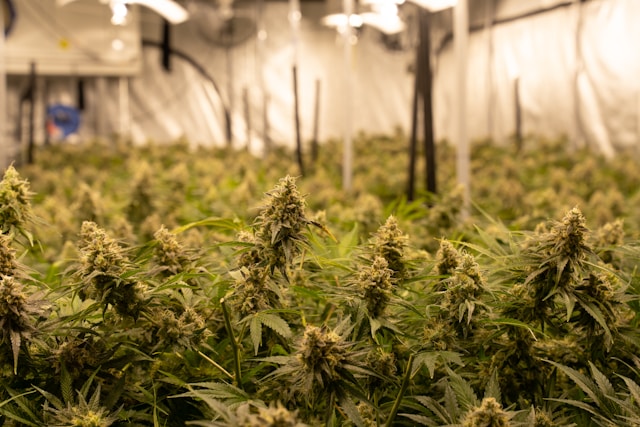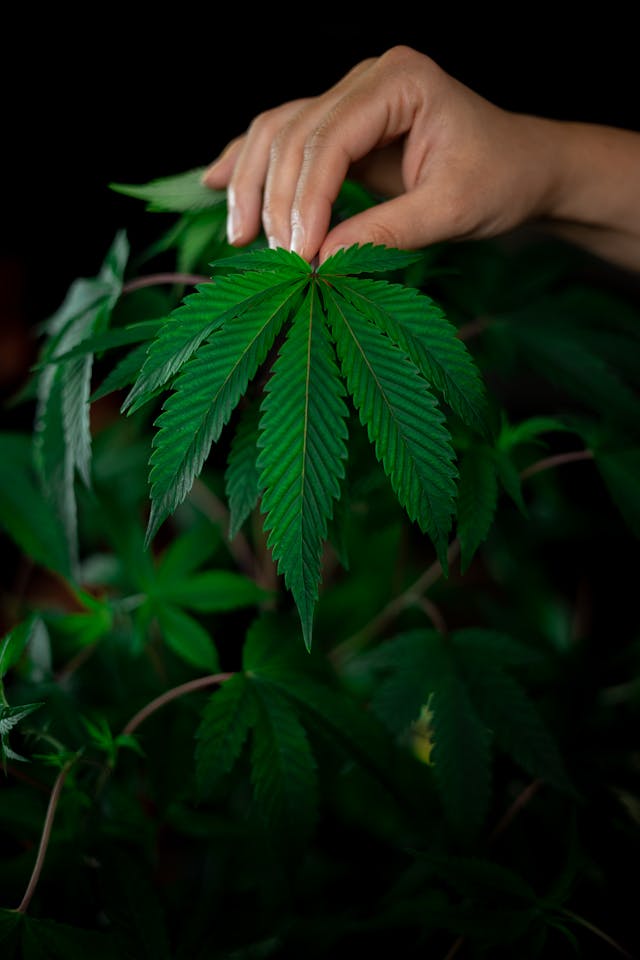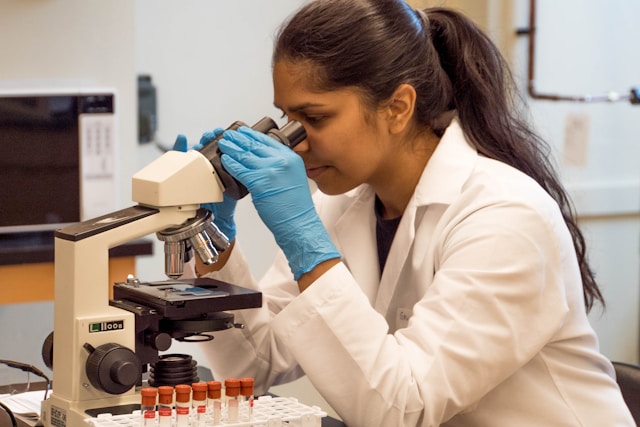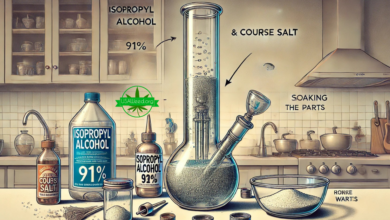A Non-Psychoactive Precursor With Potent Potential

Tetrahydrocannabinolic acid (THCA) is an interesting connection within the uncooked hashish plant. In distinction to its well-known counterpart, Delta-9-Tetrahydrocannabinol (THC), THCA is non-psychoactive, which implies that it doesn’t produce the “excessive” that’s related to hashish. This distinctive perform paves the best way for a wide range of functions and advantages which are simply beginning to be investigated.
Perception into THCA
THCA is a composite intrinsic for the biochemistry of the hashish plant. Because the non-psychoactive acid precursor of THC, THCA represents a important section within the cannabinoid life cycle, which embodies an enormous potential that extends past the dominion of leisure use of hashish.
THCA has been discovered within the trichomes of recent, undressed hashish flowers and is the results of the pure biosynthetic processes of the plant, which synthesize cannabinoids of smaller molecular precursors.
Use of THCA -Bloem
THCA -FlowerOr tough hashish might be consumed in varied non-psychoactive methods. Making recent hashish leaves and buttons is a well-liked technique, so that customers can embody THCA of their food regimen with out experiencing intoxication. Uncooked hashish will also be utilized in salads or smoothies, making a flexible technique to acquire entry to the potential advantages of THCA.
Biosynthesis of THCA
The journey of THCA begins with the synthesis of cannabigeroleic acid (CBGA), sometimes called the “mom cannabinoid” due to his function as a precursor of assorted massive cannabinoids.

Particular enzymes within the hashish plant convert CBGA into completely different cannabinoid acids, together with THCA, by way of a course of influenced by the genetics and environmental situations of the plant. Because the plant grows up, THCA accumulates, particularly within the flowering section, the place it reaches the best concentrations.
The science of decarboxylation
Decarboxylation is a chemical response that’s important for unlocking the psychoactive potential of THC. This course of consists of the elimination of a carboxyl group (-cooh) from the THCA molecule, which releases carbon dioxide (CO2).
Warmth is the first catalyst for decarboxylation, with optimum temperatures ranging between 220 ° F to 240 ° F (104 ° C to 116 ° C). Though decarboxylation of nature can happen in time when exposing to environmental warmth and lightweight, the applying of direct warmth by way of strategies resembling bins, smoking or evaporation hurries up the response, making THCA effectively transformed into THC.
Implications from THCA to THC transformation
Psychoactivity transition: The conversion from THCA to THC is essential for the psychoactive results of hashish. Thc interacts with the CB1 receptors of the endocannabinoid system, primarily within the mind, which results in the euphoric and intoxicating results related to hashish use. THCA, however, doesn’t present this psychoactivity due to the lack to bind to those receptors successfully.
Therapeutic potential of THCA: Regardless of the concentrate on THC for its psychoactive traits, THCA has proven promising in numerous therapeutic functions. Provisional analysis suggests, amongst different issues, potential anti-inflammatory, neuroprotective and anti-sickness results, along with different advantages. These traits make THCA a compulsory a part of hashish for medical examination and functions and provide doable Steentegen with out psychoactive results.
Consumption and utility: The understanding of THCA and its conversion with THC is essential for shoppers and medical sufferers, which influences how hashish is consumed. For individuals who have an interest within the non-psychoactive advantages of THCA, consuming uncooked hashish (resembling in juices or salads) is a possible technique. Conversely, these searching for the psychoactive results of THC can go for strategies that relate to heating, resembling smoking or cooking with hashish.
Potential advantages of THCA
THCA, a non-psychoactive cannabinoid that has been discovered abundantly in tough and unprocessed hashish, features scientific curiosity for its potential therapeutic advantages.
In distinction to its psychoactive counterpart THC, THCA has demonstrated promising anti-inflammatory results in pre-clinical research, making it doable for the remedy of autoimmune illnesses and inflammatory issues resembling arthritis and lupus.
These results can come up from the interplay of THCA with the endocannabinoid system and different mobile routes concerned in irritation, together with the inhibition of vital inflammatory enzymes and cytokines.

Furthermore, THCA has attracted consideration to its neuroprotective properties and gives potential within the combat towards neurodegenerative illnesses resembling Parkinson’s illness and Alzheimer’s illness. Analysis means that THCA can defend mind cells towards injury and oxidative stress, two mechanisms within the coronary heart of neurodegenerative situations. This safety might be the antioxidant properties of THCA and his skill to modulate neuro -inflammatory routes, which signifies a promising course for future therapies aimed toward neuroprotection.
THCA additionally exhibits anti-proliferative properties, which suggests a job in combating most cancers. Early research point out that THCA can inhibit the expansion of sure most cancers cell strains, together with that of the prostate, chest and colon, by way of mechanisms resembling inducing apoptosis in most cancers cells and inhibiting their proliferation. Though the precise paths that obtain THCA achieves these results shouldn’t be understood in full, the flexibility to concentrate on most cancers -like cells with out harming wholesome cells a promising space of analysis into most cancers.
Nonetheless, it’s essential to notice that a lot of the analysis into THCA remains to be within the provisional phases, primarily consisting of pre -clinical research. To be able to absolutely perceive the therapeutic potential, the efficacy and security of THCA, the transition from laboratory and animal research into scientific examinations of individuals is important.
Additional analysis into optimum doses, supply strategies and lengthy -term results of THCA is important for the event of focused therapies. An vital problem for THCA analysis is the authorized standing in lots of areas, which may restrict entry to high-quality analysis materials and financing. As well as, the variability in hashish strains and THCA concentrations complicates the standardization and dosage in scientific research.
Regardless of these challenges, THCA maintains a big promise as a therapeutic agent, with its potential anti-inflammatory, neuroprotective and anti-proliferative properties.
Because the scientific neighborhood delves deeper into the therapeutic potential of cannabinoids resembling THCA, there’s hope that these connections can provide new, efficient remedies for a variety of issues.

This underlines the significance of steady analysis and exploration within the subject, which emphasizes the necessity for an in -depth idea and utility of hashish -derived connections in drugs.
Authorized standing and availability
The authorized panorama for THCA is complicated, significantly starting from one area to a different. In areas the place hashish is authorized for medical or leisure use, THCA Flower is extra simply accessible. Nonetheless, non-psychoactive standing can provide alternatives for authorized entry in a broader vary of areas of legislation, offered that there’s readability and assist of regulatory authorities.
Though the primary research on THCA are promising, there’s a nice want for additional analysis to make clear your entire therapeutic potential. The exploration of THCA can result in new, non-intoxicating choices for sufferers searching for aid from completely different illnesses.
THCA -Bloem represents a comparatively untouched potential within the hashish plant. His non-psychoactive nature, mixed with promising preliminary analysis into its advantages, makes it an intriguing topic for additional analysis.
Because the hashish business continues to evolve, THCA might play an vital function in increasing the functions of the manufacturing facility that goes past psychoactivity and gives new methods for well being and properly -being.




